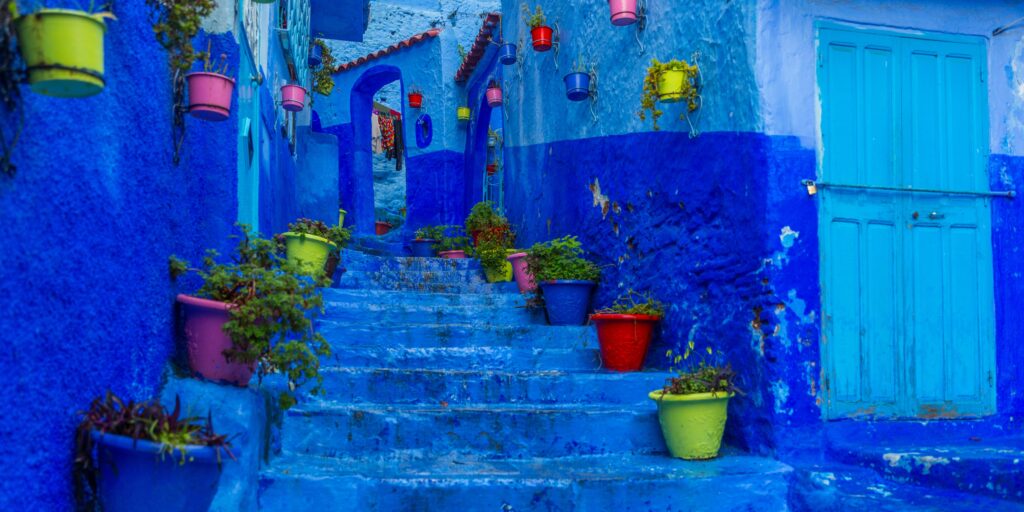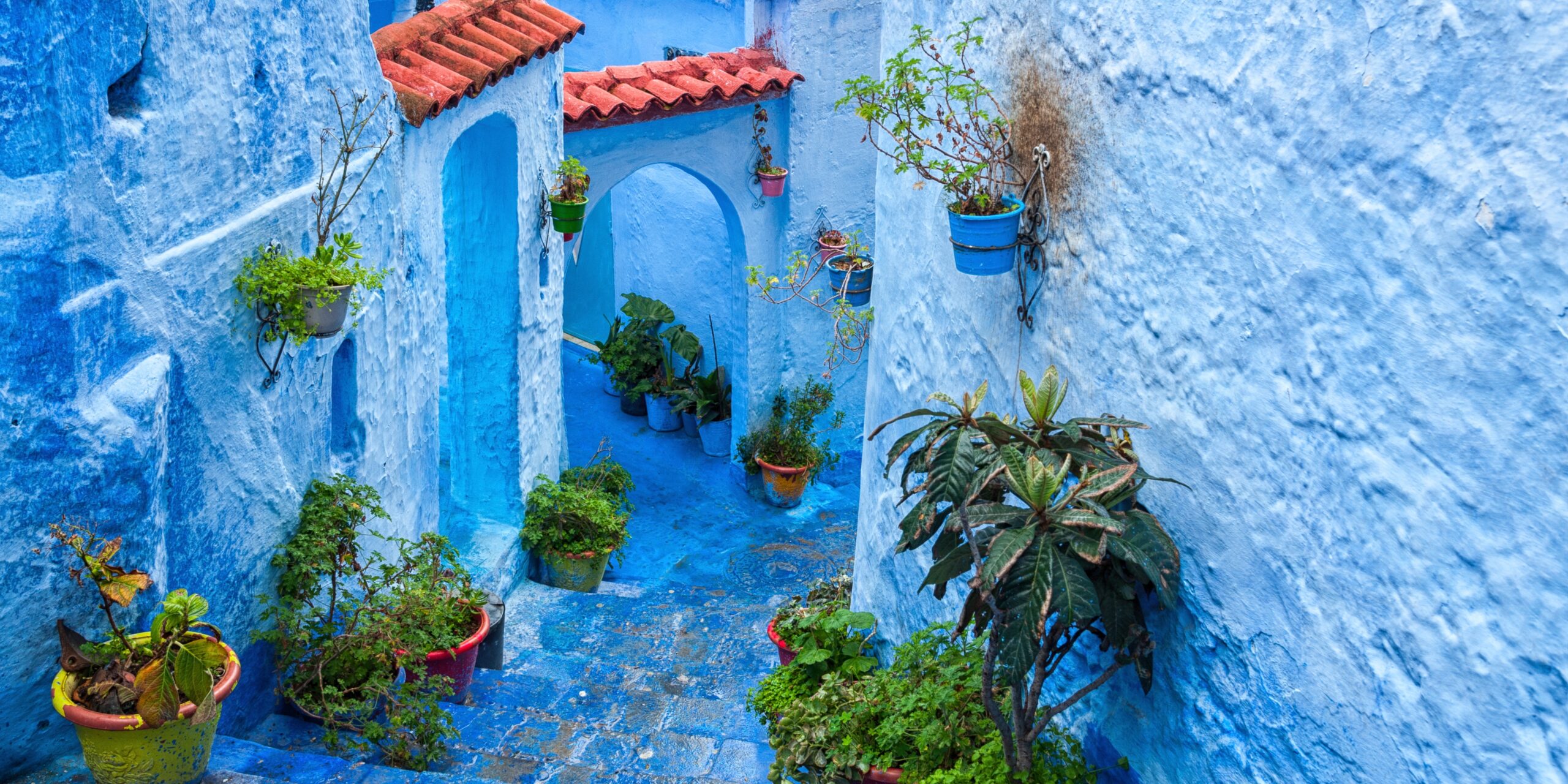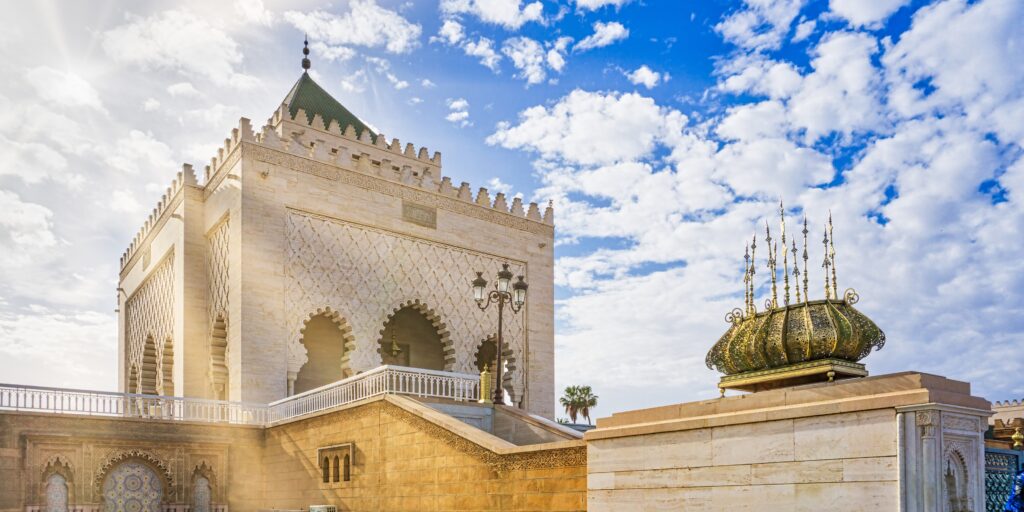Where to stay and how to choose
Morocco offers a wide range of places to stay, from traditional riads and historic kasbahs to budget hostels, luxury hotels, desert camps, and short-term rentals. Knowing the differences, expected costs, and local customs will help travelers pick the right option for their style and budget.
Quick overview – main accommodation types (what they are + typical price ranges)
| Type | What it is | Typical price range (per room/night, for 2 people) |
| Riad | Traditional townhouse or palace with an internal courtyard, often restored into guesthouses offering breakfast and local décor. Ideal for cultural immersion. | Basic riads: $40–$90, Mid-range: $90–$220, Luxury: $250+ (varies by city). |
| Hotel (budget → luxury) | International and local hotel chains, from basic business hotels to 5★ luxury properties with pools and full services. | Budget: $25–60, Mid-range: $60–150, Luxury: $200–800+ |
| Kasbah / Palace Stay | Fortified historic houses (often outside medinas); many converted to boutique hotels with atmospheric settings | $100–500+, luxury suites higher. |
| Desert Camp / Berber Tent | Ranges from basic shared tents to high-end private camps with en-suite bathrooms and luxury dining. | Budget camp: $20–60, Mid-luxury: $80–200, Luxury camps: $200+. |
| Hostel / Guesthouse | Shared dorms and private rooms; social option for solo travelers and budget groups. | Dorms: $8–18, Private rooms: $25–50. |
| Villa / Apartment (short-term rental) | Self-catered homes via Airbnb/booking — popular for groups and longer stays. Note legal/regulatory requirements for hosts. | $50–300+ depending on size and season |
Note: Prices fluctuate by season and city. Marrakech and coastal/tourist hotspots tend to be pricier in high season (Oct–May for coastal; Oct–Apr for mountain trekking)
Choosing what’s best for your trip
- Solo travelers: Hostels, riads with communal spaces, and small guesthouses are great for meeting people and staying budget-friendly.
- Families: Mid-range riads (with private courtyards), family suites in hotels, or private villas offer comfort and privacy. Look for properties with ensuite bathrooms and child-friendly meals.
- Adventure seekers: Use riads or guesthouses in gateway towns (e.g., Imlil for the High Atlas, Merzouga for Sahara access), or base in a nearby city and join guided day trips. For off-grid stays, book sturdy desert camps or mountain gîtes.
What to expect in riads and kasbahs (practical points)
- Breakfast is usually included, often served in the courtyard. Dinner may be available by request.
- Rooms vary widely in size and features, many riads are historic so rooms can be compact; read room descriptions carefully.
- Quiet hours and house rules: Riads emphasize a calm courtyard experience; loud parties are uncommon and often discouraged.
- Facilities: Not all riads have elevators, modern plumbing, or daily housekeeping identical to hotels; check accessibility if mobility is a concern.
- Wi-Fi: Many places provide Wi-Fi but speeds vary outside cities or in desert camps.
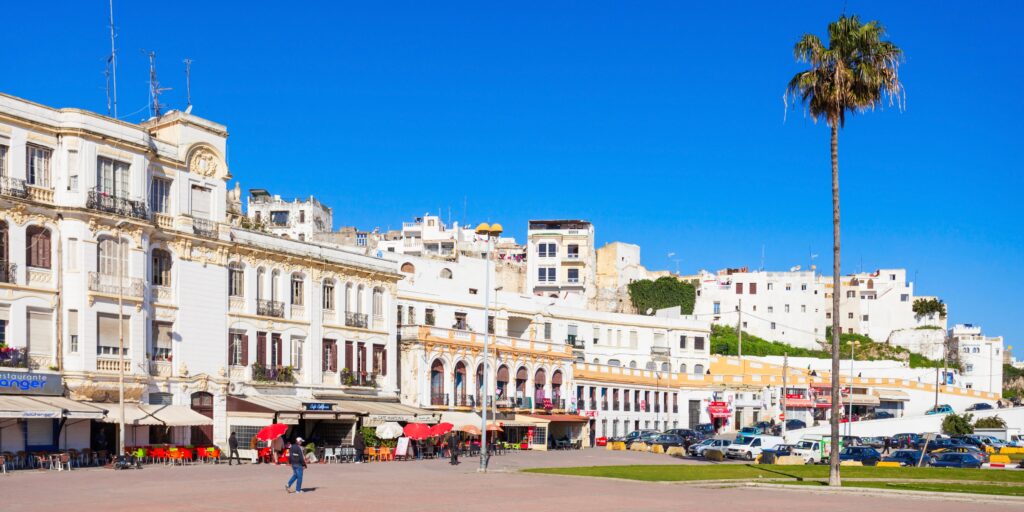
Safety, hygiene, and comfort tips
- Sanitation: Reputable riads, hotels, and camps maintain modern hygiene standards, but always check recent reviews for cleanliness and pest reports. Booking platforms and guest reviews (Tripadvisor/Booking/Expedia) are reliable early signals.
- Family safety: Choose accommodations with private bathrooms, locks on windows/doors, and child-friendly amenities if traveling with kids. Ask about babysitting services in advance.
- Accessibility: Many historic riads have stairs and narrow passages; request ground-floor rooms if needed.
- Desert and remote stays: Confirm bathroom facilities, heating (nights can be cold), and whether transport is included. Luxury camps provide comforts; basic camps are rustic.
Booking platforms, trust signals and regulation notes
- Where to book: Booking.com, Expedia, Agoda, and Airbnb are widely used for hotels, riads, and apartments; many riads also accept direct bookings via their websites or email. Compare prices and cancellation policies across platforms.
- Short-term rental rules: Morocco requires owners/operators of furnished tourist rentals to comply with national registration and licensing (Law 31-18 and subsequent implementation guidance). Many owners still operate without formal licensing in some cities; this can affect cancellation, guest registration, tourist tax collection, and legal recourse. If listing a rental, check for a tourism ID number and that hosts register guests per local rules.
- Tourist tax / city tax: Many cities charge a small per-person/night tourist tax collected at check-in; the amount varies by accommodation class. Always check the fine print.
- Reviews: Prioritize properties with many recent reviews and responsive hosts; check photos and room descriptions for authenticity.
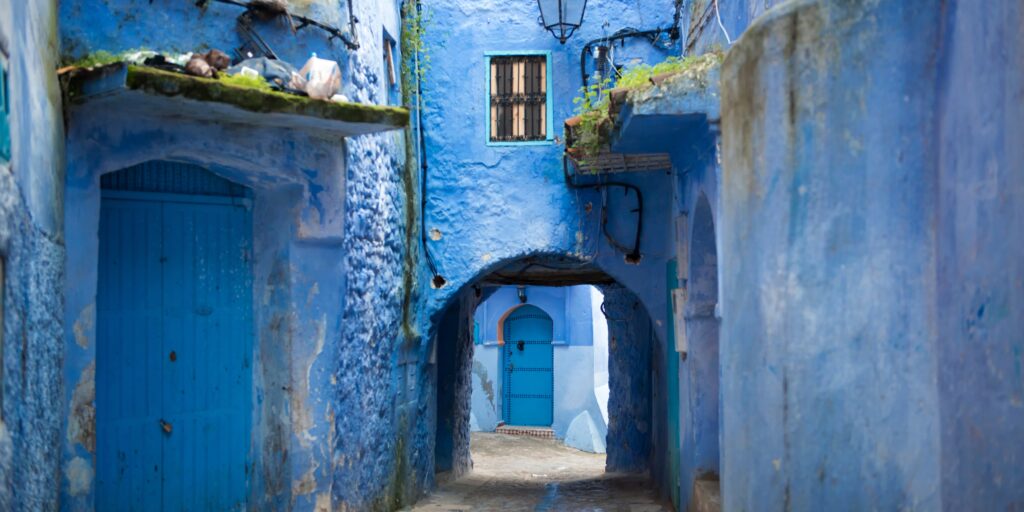
Local etiquette & helpful hints at accommodation
- Dress and behavior: Respect modesty in riads and family-run guesthouses; towels and swimwear are fine at hotel pools, but wear cover-ups in public areas.
- Shoes off: Many riads expect guests to remove shoes before entering courtyard or rooms, follow host guidance.
- Tipping: Small tips are appreciated for excellent service (a few dirhams for housekeeping, porters; 5–10% in restaurants if service not included). Tipping is discretionary, not mandatory.
Peak seasons, cancellation and best-booking strategy
- High season: Spring (March–May) and Autumn (September–November) , book riads and desert trips early. Winter (Dec–Feb) can be busy around New Year and holiday periods; mountain trekking has a separate season due to snow.
- Booking tips:
- Book riads and desert camp nights at least 1–3 months in advance for high season.
- Ask cancellation policies and whether transfers (airport, desert pickup) are included.
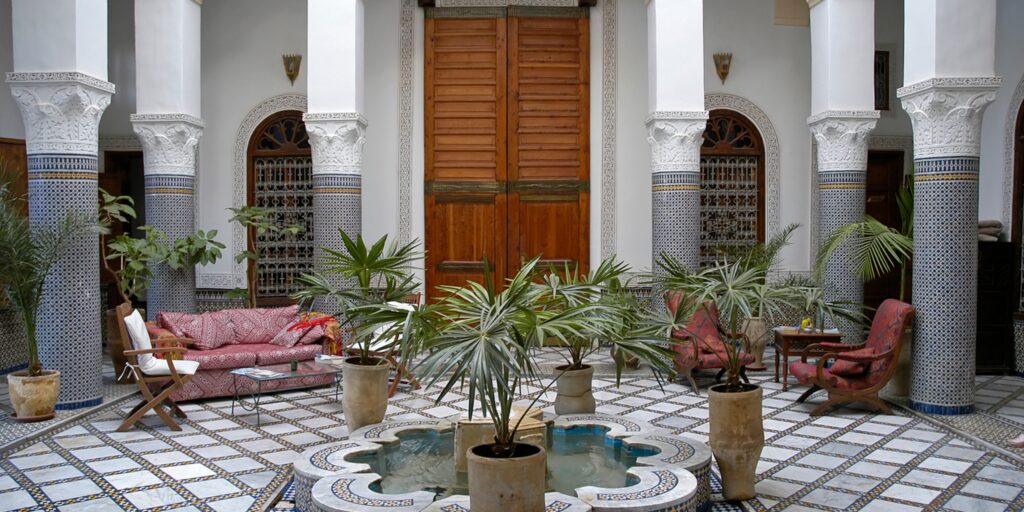
Price examples (to set expectations), sample nightly ranges in 2024–2025 (two people)
- Budget riad / guesthouse: $35–$70
- Comfort riad / mid-range hotel: $70–$160
- Premium riad / boutique hotel: $180–$400
- Luxury hotel / palace suite: $400+
- Desert luxury camp: $180–$500 per person (incl. meals/activity) depending on level.
Safety & complaint handling
- For serious safety or fraud issues with paid accommodation, contact your payment provider and local authorities. For unlicensed rentals, documentation (screenshots, messages) helps when filing disputes or insurance claims.
- Recommend travel insurance that explicitly covers cancellations, lost bookings, and emergency medical evacuation.
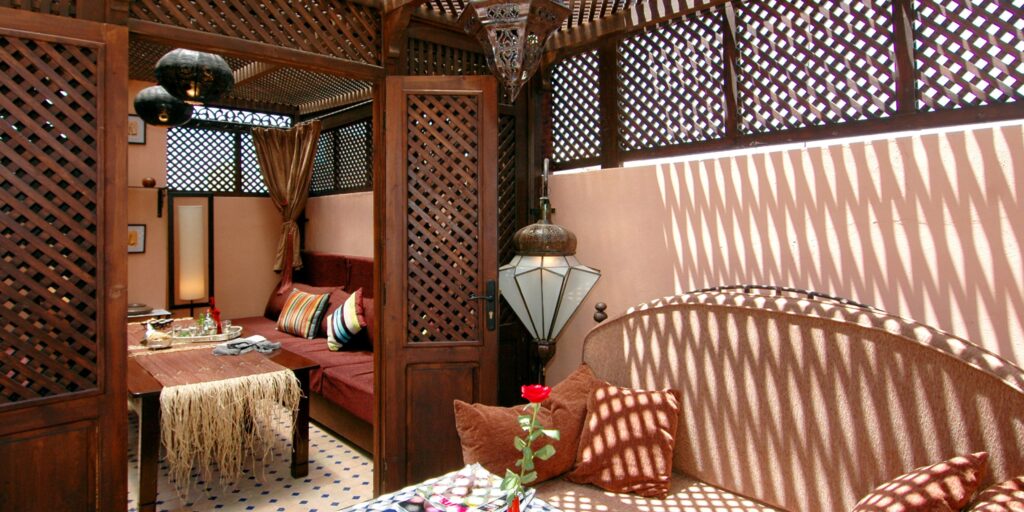
Quick checklist for booking accommodation in Morocco
- Verify property reviews (last 6 months) and photos.
- Confirm included services (breakfast, airport transfer, taxes).
- Ask about heating/cooling, hot water, and Wi-Fi if those matter.
- Confirm guest registration requirements: hosts must register passport details with local police . Ask if host handles this.
- Keep booking receipts and host contact info.
Sources and further reading (key references used)
- Guide to riads, kasbahs and accommodation types. [Inspiring Vacation]
- Price averages and hotel trends (Marrakech example). [Budget Your Trip]
- Desert camps, eco-lodges, and seasonal notes. [Rough Guides]
- Short-term rental / Airbnb regulation and licensing updates (Law 31-18, 2025 guidance). [Orchid Island]
- Booking platforms and hotel listings. [expedia]
